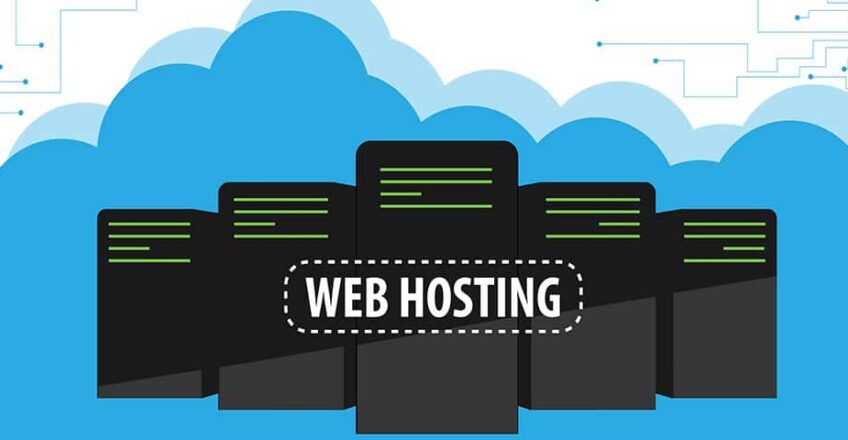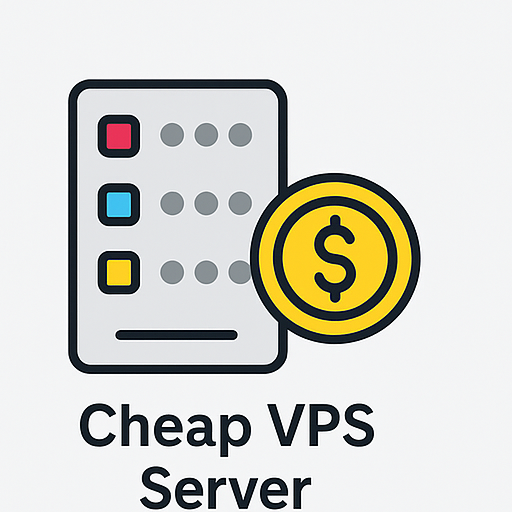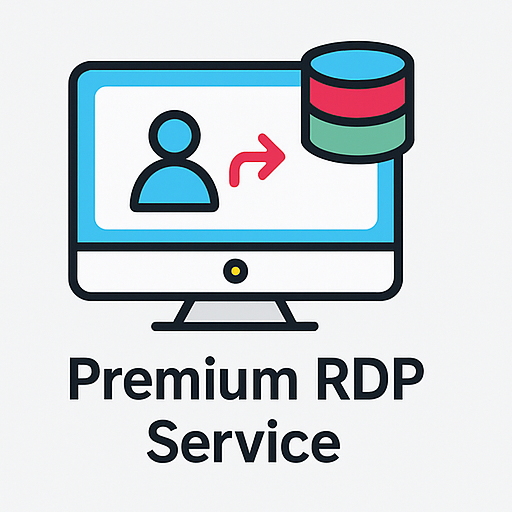
101 Hosting Terms You Must Know Before Buying a Hosting Plan
Understanding the terminology used in the hosting world is essential when selecting the right service for your website. This glossary covers 101 essential terms you’ll encounter when buying hosting. Familiarity with these terms will help you make smarter, faster decisions.
1. Domain Alias
Allows you to link additional domains to your hosting so that visitors entering any of the aliases are redirected to the main site.

Debian VPS Server
Secure, Stable & Affordable
2. Addon Domain
Lets you host multiple websites on the same hosting account, each with its own domain and content.
3. Auto Responder
Automatically replies to incoming emails with predefined messages.
4. ASP (Active Server Pages)
A Microsoft web development framework for building dynamic websites.
5. Backup
A copy of your website’s data used for restoration in case of data loss or failure.
6. Bandwidth
The amount of data that can be transferred between your website and its visitors.
7. Browser
Software (e.g., Chrome, Firefox) used to view web pages.

Premium RDP Service by ColonelServer
🌟 Starting From $8.99/monthly
🌍 25+ Locations Worldwide
8. CGI (Common Gateway Interface)
Software that allows data processing between the server and the user through web forms.
9. C++
A general-purpose programming language, often requiring Windows hosting environments.
10. Cloud Hosting
A method of storing data across multiple servers, enhancing speed, reliability, and scalability.
11. Client
The person or system purchasing and using hosting services.
WordPress Web Hosting
Starting From $3.99/Monthly
12. Co-Location
When you own the physical server and place it in a hosting provider’s datacenter.
13. CMS (Content Management System)
Software like WordPress that helps manage website content without programming knowledge.
14. cPanel
A popular Linux-based control panel for managing hosting accounts through a graphical interface.
15. Cache
Stored web data on browsers for faster load times on subsequent visits.
16. Control Panel
Interface for managing server settings (e.g., DirectAdmin, cPanel).
17. CSS (Cascading Style Sheets)
Language used to design and style HTML elements on web pages.
18. Crawler (Spider)
Bots that index website content for search engines.
19. Database
Organized collection of data used by websites to store dynamic content.
20. IDC (Internet Data Center)
Facilities where servers are stored and connected to high-speed internet.
21. Dedicated Server
A server used exclusively by one client, offering maximum performance and control.
22. DDoS Attack
A type of cyberattack where massive traffic floods a server, disrupting services.
23. Disk Space
The storage allocated to host your website’s files, images, and databases.
24. DirectAdmin
A lightweight, user-friendly hosting control panel alternative to cPanel.
25. Anti-DDoS Protection
Security measures designed to mitigate DDoS attacks.
26. Domain Name
The unique address used to access a website (e.g., colonelserver.com).
27. DNS (Domain Name System)
Translates domain names into IP addresses.
28. FTP (File Transfer Protocol)
Protocol used to transfer files between local systems and servers.
29. GB (Gigabyte)
A unit of digital information storage. 1 GB = 1024 MB.
30. .htaccess
Configuration file used to control Apache server behavior.
31. Ping
A diagnostic command to test network latency and connectivity.
32. HTTP
The foundational protocol for data transfer on the web.
33. IMAP
An email protocol that stores messages on the server, syncing across devices.
34. ISP (Internet Service Provider)
Companies providing internet access to users.
35. IP Address
A unique numerical label assigned to each device on a network.
36. JavaScript
A programming language for creating interactive web elements.
37. Linux Server
A server running the Linux OS, often used for shared and cloud hosting.
38. MySQL
An open-source relational database management system.
39. Host
The server where your website files are stored.
40. PHP
A popular server-side scripting language for web development.
41. POP3
An email protocol that downloads emails to local devices.
42. SSD (Solid State Drive)
A fast, durable storage device with no moving parts.
43. SEO
Search Engine Optimization – improving website visibility in search engines.
44. Server
A computer that provides data and services to other computers over the internet.
45. Spam
Unsolicited or irrelevant messages, usually sent via email.
46. Reseller Hosting
Hosting that allows you to resell space to other users under your own brand.
47. SMTP
The standard protocol for sending emails.
48. SSH
Secure Shell – an encrypted connection protocol for remote server management.
49. SSL
Security protocol for encrypted connections between websites and users.
50. Subdomain
A secondary domain that’s part of a main domain (e.g., blog.colonelserver.com).
51. Script
Automated or dynamic code used to build website functionality.
52. Cloudflare
A content delivery network and security service to speed up and protect websites.
53. Telnet
A protocol for remote communication with servers (less secure than SSH).
54. URL
Uniform Resource Locator – the full web address of a specific webpage.
55. Unique IP Address
A dedicated IP address assigned to a website or server.
56. WooCommerce
A WordPress plugin for building e-commerce websites.
57. VPS (Virtual Private Server)
A virtualized server offering dedicated resources within a shared environment.
58. Xeon Gold 5218R
A powerful Intel processor used in enterprise-grade servers.
59. Entry Process
The number of active processes a hosting account can handle simultaneously.
60. Imunify360
A comprehensive Linux server security suite.
61. Upload
The action of sending files from your device to a server.
62. GTmetrix
An online tool for testing website performance.
63. Uptime
The percentage of time a hosting server remains online.
64. Google Analytics
A free tool by Google to track and report website traffic.
65. Download
The action of retrieving files from a server to a local device.
66. Google Drive
A cloud storage service by Google.
67. Web Server
Software like Apache or NGINX that serves web content to users.
68. HPE Gen10
A server line from Hewlett Packard Enterprise with high performance.
69. DDR5 RAM
Fifth-generation high-speed server memory.
70. HPE Gen9
An earlier generation of HPE servers suitable for enterprise workloads.
71. DNS Cluster
A group of DNS servers that sync domain zone records.
72. DDR4 RAM
A fast, reliable memory standard commonly used in modern servers.
73. IOPS
Input/Output Operations Per Second – a performance metric for storage.
74. MariaDB
A community-developed fork of MySQL with enhanced features.
75. nproc
A Linux command that displays allowed process limits per user.
76. WP Toolkit
A tool in cPanel for installing and managing WordPress sites.
77. I/O
Server input/output activity, measuring data read/write operations.
78. Sitejet Builder
A no-code website builder for quick design and deployment.
79. Ampere Altra
ARM-based processors optimized for cloud and data center workloads.
80. NOC (Network Operations Center)
A centralized location for monitoring and managing IT infrastructure.
81. Object Cache
Caches database objects to reduce load times and server queries.
82. JetBackup
A backup solution integrated with cPanel for restoring data easily.
83. Redis Cache
An in-memory database and cache engine to enhance performance.
84. WP Rocket
A WordPress caching plugin to improve page load speed.
85. SLA (Service Level Agreement)
A formal agreement defining the performance standards a host must meet.
86. NGINX
A web server that also acts as a reverse proxy and load balancer.
87. Memcached
A high-performance memory caching system.
88. Hetzner
A German-based data center known for affordable server hosting.
89. Core
Refers to individual processing units within a CPU.
90. OVH
A major European hosting provider headquartered in France.
91. Remote Backup
Storing backups on offsite servers or cloud storage.
92. NVMe
Ultra-fast storage technology used in high-performance SSDs.
93. Local Backup
Storing backup data on directly connected storage devices.
94. HTML
The standard language for structuring web content.
95. Google PageSpeed Insights
A Google tool to evaluate and improve website speed.
96. Rank Math
A powerful SEO plugin for WordPress websites.
97. Smush
A plugin that compresses and optimizes images on WordPress sites.
98. Jetpack
A multifunctional WordPress plugin offering performance, security, and analytics tools.
99. Wordfence
A WordPress security plugin offering real-time firewall and malware scanning.
100. Yoast SEO
A popular plugin that optimizes WordPress content for search engines.
101. LiteSpeed Cache
A caching solution for dynamic content, improving website load speed.
Related Services on ColonelServer:
Whether you’re setting up a cheap VPS server, managing a WordPress premium hosting environment, or exploring GPU server or AI server options, mastering these hosting terms will empower you to choose the right solution for your business needs.

